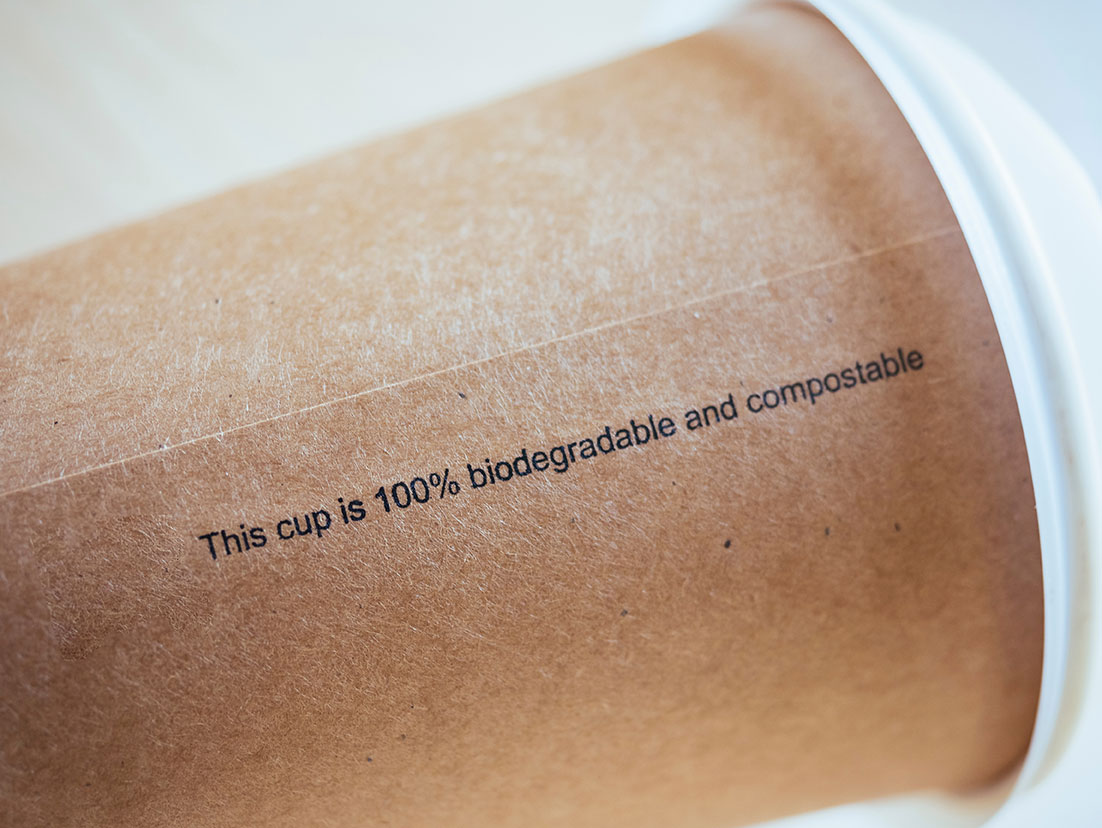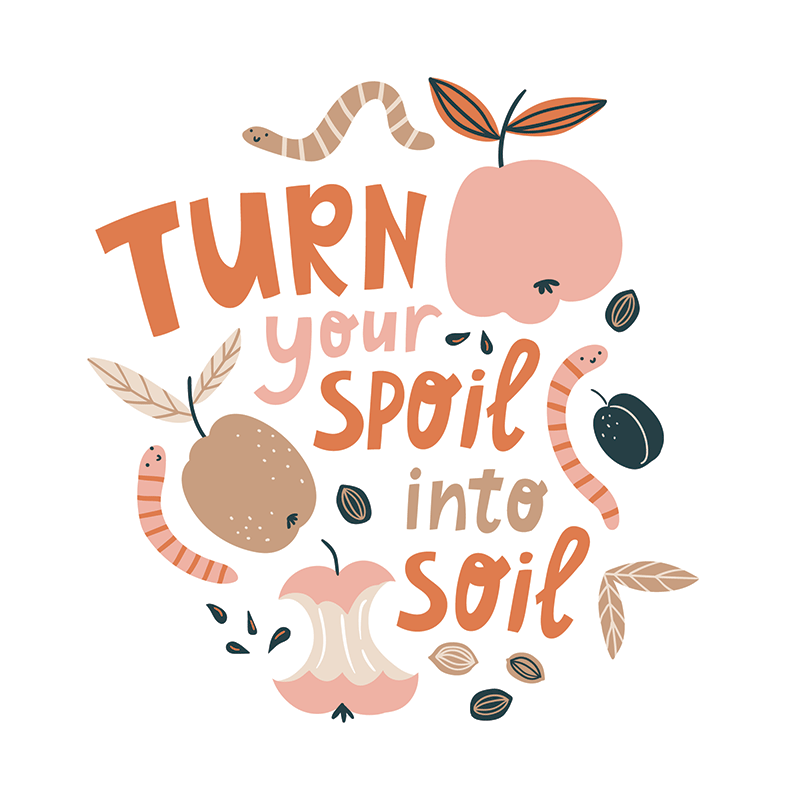8 February 2022 |
A firm favourite in the gardening world, the HOTBIN composter has been revolutionising the way people compost for a whole decade.
Made from expanded polypropylene, the material’s thermal properties allow the HOTBIN to lock in the naturally generated bacterial heat, allowing the internal temperature to rise to 40-60c accelerating the composting process up to 32 times faster than traditional methods. As HOTBIN’s big 10 year anniversary has just passed, let’s take a look at 10 reasons why it is one of the best sustainable composting solutions on the market.
1. Produce less waste for landfill and incineration
Composting helps to reduce the amount of household waste we throw away, thus reducing our reliance upon landfills. Taking responsibility for waste and investing in a composting system, like HOTBIN, lessens this impact on waste services and the environment. Plus, you get to reap all the benefits of composting by producing a nutrient-rich, water-retaining humus to improve the structure and quality of soil which all plants need to grow, all from your own back garden.
2. Breaks down any compostable packaging
A unique element of the HOTBIN composter is that it can quickly break down any compostable packaging. In a recent trial we took a brand of home compostable coffee pods and processed them through the HOTBIN. After 30 days the pods showed significant degradation, after 60-90 days the pods were fully composted. Compostable packaging is becoming a more common feature, whether in the form of food waste bags, postal mailers and plant-based food packaging such as Vegware.
Many materials that claim to be compostable don’t break down that easily in traditional compost bins, however due to the HOTBIN’s high temperatures, any shredded compostable packaging can be effectively broken down in 60 to 90 days.

3. Sustainable Composting focused ethos
Sustainability is at the heart of the HOTBIN ethos. Following a recent packaging review, we have removed plastic bubble wrap in favour of a recyclable or compostable corrugated box alternative. This packaging can be torn or shredded by customers and composted through the HOTBIN acting as moisture control and part of the HOTBINs composting process.
HOTBIN operate a large drop-ship policy where nearly all HOTBINs sold are shipped direct from our manufacturing site in County Durham, thus eliminating unnecessary additional box miles which would be incurred using a fulfilment centre.
4. Made from resource efficient materials
The HOTBIN composter itself is made from EPP ARPRO, an extremely resource efficient and recyclable material consisting of 96% air. This air is trapped inside millions of tiny air pockets making the product an extremely good insulator. As we know, air is a poor conductor of heat, so heat loss and transfer are minimised keeping the HOTBIN hot.
5. Low environmental impact
The HOTBIN consists of just 4% raw material and this material (EPP) uses no harmful chemicals such as CFCs or HCFCs during manufacture helping to minimise damage caused to the ozone layer. Along with all the other environmental benefits listed in this article, the HOTBIN does a great job of lowering its environmental impact.
We are passionately working towards busting the negative environmental myths surrounding foam products and promoting the green credentials of our materials.
6. Reduces kerbside collections destined for landfill
The more we recycle at home, the less there is for recycling and refuse vehicles to collect and the environmental impact of vehicles is lessened. Fewer vehicles mean less fuel is required, decreasing the impact on the planet and pollution in local areas.
As the HOTBIN can handle a wider variety of home produced food and garden waste, recycling this into compost also reduces the need for home deliveries of compost or making multiple trips to the garden centre to collect it.
7. Produce peat free compost at home
If you haven’t heard of peat bogs, these are areas of wetland made up of moss and other plant materials that retain water and prevent flooding. Peat takes a long time to form in these areas, with its growth estimated to be around 0.5-1mm each year, playing a valuable role in protecting land, wildlife habitats and storing carbon.
Peat has been a popular addition to soil to encourage moisture and is often found in bagged compost. The removal from peat bogs has caused destruction that will take a long time to repair, in fact it is estimated that annually the commercial extraction of peat removes a colossal 500 years worth of growth.
As the phasing out of peat usage is destined for 2030, one way to start protecting these valuable peat bogs now is to make your own peat-free but nutrient-rich compost at home.
Why we need to keep peat in the ground – and out of our gardens
8. Improves soil quality
Soil quality is essential for healthy plant growth, without nutrient rich soil, it is difficult to grow good quality produce and healthy plants with an abundance of flowers.
When buying bagged compost, quality can also vary from bag to bag. The most effective way to ensure a source of great quality compost is to make your own.

The HOTBIN Composter guarantees a rich compost supply, with a mulch in 30 days and a rich compost in 90. Compost can be spread across vegetable patches and borders or used in pots and around the bases of trees enabling a garden to thrive.
9. Encourages self-sufficiency
Being more self-sufficient largely reduces your carbon footprint. Plus, you could be producing a whole range of home-grown food for the family to enjoy whilst saving some pennies.
Since the outbreak of covid-19, more of us have become garden aware, growing our own vegetables and making it a family activity by getting the children involved too. Nothing tastes better than something nurtured and grown by your own hands and this all helps lessen the environmental impact as we all become more attuned to climate change.
As one of the top sustainable composting solutions on the market, the HOTBIN Mini is a great place to start for those new to composting or in a smaller household.
10. It all adds up!
Assuming a typical HOTBIN user composts around 10 litres of waste a week, that translates to a whopping 520 litres of kitchen and garden waste diverted from landfill each year. If that composting activity is completed by 5000 households each using a HOTBIN that is a staggering 1300 tonnes of waste diverted from landfill annually – the equivalent of 65 bin lorries and enough to fill an Olympic swimming pool!
It has been an outstanding, award-winning decade for the HOTBIN and great to see the passionate increase in eco-conscious consumers embracing HOTBIN composting.
If you looking for a compact, compost bin that produces high quality compost, quickly then check out: hotbincomposting.com.
More News Stories
How can we help you?
Contact us
Ready to discover your sustainable solution?
